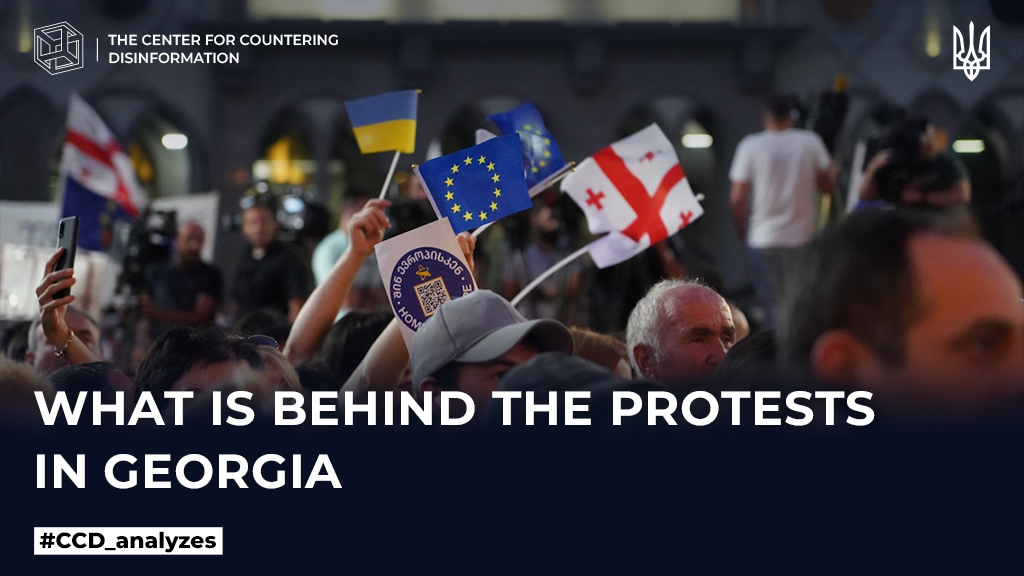The situation on the streets of Georgia’s capital causes concern and reaction from the whole world. As of March 8, law enforcement officers, using water cannons and tear gas, completely occupied the territory adjacent to the Parliament of Georgia, pushing out the protesters. Currently, the participants of the action remain behind the security forces’ barricades.
What caused such events?
The catalyst for the protests was the adoption by the Parliament of Georgia on March 7 in the first reading of one of the two draft laws on “foreign agents” – “On the transparency of foreign influence” (the second – “On the registration of foreign agents”). Georgian society was especially irritated by the fact that the consideration of the law was postponed from March 9 to March 7 without explanation, and the discussions began in the absence of the majority of opposition deputies and the president of Georgia. A statement against the adoption of the law, signed by several hundred non-governmental organizations and mass media of Georgia, was also ignored.
☝️ The draft law provides for the registration as agents of foreign influence of non-commercial legal entities and mass media, the income of which is more than 20% received from abroad. According to this draft law, everyone who is considered to be an agent of foreign influence must display the income received in the State Register database and fill out a financial declaration annually. A fine of 25,000 lari (almost 9,000 dollars) is provided for evading registration or not filling out the declaration.
What was the reaction of the world?
In its statement, the US Embassy called these events “a black day for Georgian democracy,” and the parliament’s further consideration of “kremlin-inspired laws” is “incompatible with the clear desire of the people of Georgia for European integration and democratic development.” The official representative of the US State Department, N. Price, said that “those who are responsible for the suppression of the protests in Georgia might be subject to American sanctions.”
Head of EU diplomacy J. Borrell noted that Georgia’s review of the law on “foreign agents” “contradicts the values and standards of the EU, which the country wants to become a member of.”
Being in the USA, the President of Georgia S. Zourabichvili supported the protesters in her emergency address to the citizens of Georgia. She spoke out against the controversial draft law and assured the use of the presidential veto.
russia assesses the situation as provoked by the USA and the EU due to the fact that with the adoption of the law, the West loses its tool of influence in Georgia.
Why did the high-profile draft law cause such a violent reaction from society?
A significant part of Georgian society fears the repetition of the russian scenario in Georgia, where with the adoption of a similar law in 2012, the label “foreign agent” is equal to “spy” and an enemy of russia. People labeled as foreign agents face many obstacles: they cannot work in the public service, be members of election commissions, or organize public events. And they also have limited access to state funding, which pushes many organizations or foundations to close. The demonstrators believe that, as in russia, the adoption of such a law in Georgia will limit the freedoms of many categories of citizens whose lives are not connected with politics. After all, it covers, for example, grants for winemakers or treatment of hepatitis.
Is there a “russian trace” in the organization of riots?
There is currently no direct evidence of russia’s involvement in the organization of mass riots in Tbilisi. However, it is obvious that this development of the situation is in the hands of the kremlin.
1. The promotion of a high-profile draft law in the Georgian parliament effectively puts an end to the state’s ambitions to join the EU and NATO, because no EU country provides for the status of a foreign agent. That is, the adoption of the draft law eliminates for russia the threat of NATO expansion from the side of Georgia.
2. The authorities’ harsh reaction to the protests created the prerequisites for its replacement by one more loyal to the kremlin. In the future, this may affect the ban on Georgian volunteers joining the Armed Forces of Ukraine. An internal feuding will also contribute to the “shaking” of power in Georgia. It is about the oligarch B. Ivanishvili, who is considered the unspoken leader of the ruling party “Georgian Dream” and has political ambitions for higher government positions. It is he, through the “Power of the People” movement, who is pushing for consideration by the parliament a draft law that is predictably unpopular among the people, which provokes protests that may lead to a change of power in the country. Ivanishvili also expects that in case of a presidential veto, the ruling party will have enough votes in the parliament to overcome it. In addition, the lobbyist of the bill is Prime Minister of Georgia I. Garibashvili, who previously stated that Georgia has no intention of imposing sanctions on russia.
❗️Mass protests in Tbilisi threaten to provoke a full-scale political crisis in Georgia, which can be used by the kremlin. Time will tell whether the West’s tough reaction will have an impact on the situation.










